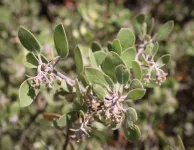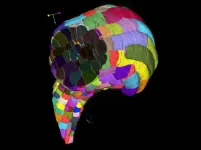(Press-News.org) UK Armed Forces servicewomen needing an abortion face a unique set of hurdles around access and care, as well as stigma and judgemental attitudes from senior (usually male) colleagues, indicates the first study of its kind, published online in the journal BMJ Sexual & Reproductive Health.
Although based on a relatively low response rate, the findings prompt the researchers to call for more information and policy on abortion provision, both for service personnel and military healthcare professionals.
In the UK around 1 in 3 women will have an abortion by the age of 45. But despite women making up almost 12% of the UK Armed Forces, anecdotal evidence indicates that their gender specific health needs are not being met while on active service, explain the researchers.
In the absence, worldwide, of published research and policy on abortion care in the Armed Forces, the researchers set out to glean the experiences of UK servicewomen to build on the evidence base and inform optimal practice.
They particularly wanted to understand the impact of being in the military on abortion decision-making and uncover any barriers to accessing care.
They circulated an online survey to UK servicewomen between March and April 2024. Respondents were asked whether they had ever had an abortion, what perceived barriers to accessing abortion care they had encountered, and if their abortion(s) were carried out during military service. Space for additional free text comments was provided.
Those reporting personal experience of abortion were additionally asked about the effect of service on the decision and chosen method, their aftercare, and the involvement of the primary care provider for the UK Armed Forces (Defence Primary Healthcare).
In all, 427 women from all ranks and all 3 services completed the survey: Royal Navy (134, 31.5%); Army (176, 41.5%); Royal Air Force (115. 21%). Most (60%, 307) were officers or other senior ranks.
In all, the responses represented just over 2.5% of the 16290 women serving in the UK Armed Forces as of October 2023.
Some 124 (29%) respondents said they had had an abortion, most of whom (102, 83%) had done so during military service. Of these, 12% were deployed overseas at the time while around half said that being in the military had affected their decision to have an abortion.
“In these cases, there was a knowledge that pregnancy-related employment restrictions (known as downgrading) may prevent their continued professional development. In many cases, the perception of pregnancy impacting on promotion prospects was cited as a reason for favouring abortion,” explain the researchers.
For all respondents, over half (224, 52.5%) felt there were barriers to accessing abortion care in the UK Armed Forces.
There were 476 free text responses to the open questions, from which 4 key themes emerged: life in the military; trust in information holders; influencers, barriers and access; and systemic lack of awareness.
Respondents said the constant moving about and overseas deployment made it difficult to access services. Others commented on the lack of privacy in shared living quarters and the incompatibility of motherhood with service and deployment needs without family support nearby.
“Respondents reported the male-dominated environment made it harder to discuss women’s health issues in general and there was a perception that the predominantly male chain of command (CoC) lacked sufficient knowledge,” note the researchers.
Some respondents felt stigmatised and judged and didn’t trust their military healthcare professionals or chain of command to respect confidentiality.
“Several respondents reported experiences of misogyny, which further compounded a lack of trust,” write the researchers.
A systemic and personal lack of information and guidance was mentioned by several respondents, who felt that they didn’t know how to go about accessing abortion care while in service and that there was no aftercare available to deal with such a distressing experience.
“Beyond general ignorance, there was a specific perception that both the [chain of command] and [healthcare professionals] were poorly informed about abortion. Participants commented that when accessing healthcare they received negative comments and judgement from [healthcare professionals], or an uncertainty about local processes for access,” point out the researchers.
“The general lack of awareness about abortion led to increased stress for respondents and it was felt that this worsened the psychological impact of abortion for some people. It was reported that there is minimal formal policy on abortion and aftercare, compared with pregnancy, and this created uncertainty about access, appropriate employment restrictions (duration and type), and future career implications,” they add.
The researchers acknowledge that the response rate was low, with several addressees not distributing the survey due to concerns about the appropriateness of the topic. And abortion can be an emotive topic, meaning that those with strong views might have been more likely to respond, they add.
Further work is required to build on the findings and deepen understanding, they emphasise, but suggest that similar barriers may exist in other uniformed or male dominated environments, or those with occupational health considerations, such as the police or the aviation industry.
And they conclude: “Although military medical services do not provide abortions in the UK, they, and the wider military, should be striving to ensure that they facilitate all aspects of comprehensive abortion care for servicewomen.
“There is an opportunity for the UK [Armed Forces] to lead the way in breaking the organisational silence around abortion care through creating accessible, robust policies and dissemination of evidence-based information for all stakeholders.”
Citing previously published research, they insist: “Ultimately, women must not be ‘denied comprehensive reproductive care because they have had the courage to join the military and protect the freedoms afforded others by their service’.”
*Lead researcher Dr Victoria Kincaid comments: ”This study has highlighted a need for greater support and awareness of abortion for all in the UK Armed Forces.”
She adds: "Since our analysis of the survey results, we have worked with a small team of women’s health experts in Defence to create an abortion information leaflet for service personnel and are in the process of creating a similar one for line managers. We have also written best practice guidelines on abortion and have talked to abortion providers to highlight the potential barriers that service personnel may face when accessing abortion care."
END
UK Armed Forces servicewomen face unique set of hurdles for abortion access/care
As well as stigma and judgmental attitudes from senior (usually male) colleagues. More information and policy on abortion care needed for service personnel and clinicians
2025-02-26
ELSE PRESS RELEASES FROM THIS DATE:
Use of strong synthetic opioids during surgery linked to poor composite experience of pain
2025-02-26
The use of powerful synthetic opioids, such as sufentanil and remifentanil, during surgery is linked to a subsequent poor ‘pain experience’---a composite of emotional, cognitive, and physical aspects of pain— suggests research published in the open access journal Regional Anesthesia & Pain Medicine.
The findings highlight the need to reassess intraoperative pain relief strategies to reduce complications after surgery and improve the quality of patient care, say the researchers.
Most patients ...
UK innovation to transform treatment for people with type 2 diabetes worldwide
2025-02-26
Millions of people with type 2 diabetes could receive better treatment thanks to a new, simple low-cost tool, according to groundbreaking research announced today at the Diabetes UK Professional Conference 2025 and published in the Lancet.
Researchers at the University of Exeter, funded by the Medical Research Council, Wellcome and NIHR Exeter Biomedical Research Centre, and supported by Diabetes UK, have developed an innovative way of identifying the most effective glucose-lowering drugs for a person with type 2 diabetes. By predicting which drug will lead to the largest reduction in blood glucose ...
AI model can read ECGs to identify female patients at higher risk of heart disease
2025-02-26
Peer reviewed/ Simulation/modelling /People
A new AI model can flag female patients who are at higher risk of heart disease based on an electrocardiogram (ECG).
The researchers say the algorithm, designed specifically for female patients, could enable doctors to identify high-risk women earlier, enabling better treatment and care. Details are published today in Lancet Digital Health.
An ECG records the electrical activity of the heart and is one of the most common medical tests in the world. In ...
Biological organ ages predict disease risk decades in advance
2025-02-26
Our organs age at different rates, and a blood test determining how much they’ve each aged could predict the risk of conditions like lung cancer and heart disease decades later, finds a new study led by University College London (UCL) researchers.
The findings, published in The Lancet Digital Health, show how accelerated ageing in specific organs can predict not only diseases affecting that organ, but diseases across the rest of the body as well.
Lead author Professor Mika Kivimaki (UCL Faculty of Brain Sciences) said: “Our organs function as an integrated system, but they can age at different rates. ...
New manzanita species discovered, already at risk
2025-02-25
A new species of manzanita — a native California shrub famous for its twisted branches and wildfire resilience — has been discovered on the central coast, but its survival is already threatened by urban development that could destroy much of its fragile population.
The discovery is detailed in a new study published in PhytoKeys, where researchers used genetic analysis to confirm the plant as a distinct species. Named Arctostaphylos nipumu to honor the Nipomo Mesa where it was discovered and its indigenous heritage, the species stands out for its shaggy gray bark — ...
Giant ice bulldozers: How ancient glaciers helped life evolve
2025-02-25
New Curtin University research has revealed how massive ancient glaciers acted like giant bulldozers, reshaping Earth’s surface and paving the way for complex life to flourish.
By chemically analysing crystals in ancient rocks, the researchers discovered that as glaciers carved through the landscape, they scraped deep into the Earth’s crust, releasing key minerals that altered ocean chemistry.
This process had a profound impact on our planet’s composition, creating conditions that allowed ...
Toward high electro-optic performance in III-V semiconductors
2025-02-25
(Santa Barbara, Calif.) — From integrated photonics to quantum information science, the ability to control light with electric fields — a phenomenon known as the electro-optic effect — supports vital applications such as light modulation and frequency transduction. These components rely on nonlinear optical materials, in which light waves can be manipulated by applying electric fields.
Conventional nonlinear optical materials such as lithium niobate have large electro-optic response but are ...
In mouse embryos, sister cells commit suicide in unison
2025-02-25
UdeM reproductive biologist Greg FitzHarris and his team show for the first time that sister cells can communicate with each other through a bridge that allows them to die in a coordinated way.
Sister cells are a pair of cells that share the same mother cell. In a new study published in Developmental Cell, researchers led by Université de Montréal (UdeM) professor Greg FitzHarris show how the early mouse embryo gets rid of the defective or unneeded cells in pairs.
“Such a mechanism could serve to ensure the elimination of cells with a ...
Automatic cell analysis with the help of artificial intelligence
2025-02-25
Identifying and delineating cell structures in microscopy images is crucial for understanding the complex processes of life. This task is called “segmentation” and it enables a range of applications, such as analysing the reaction of cells to drug treatments, or comparing cell structures in different genotypes. It was already possible to carry out automatic segmentation of those biological structures but the dedicated methods only worked in specific conditions and adapting them to new conditions was costly. An international ...
New study highlights need for better care to prevent lung problems after abdominal surgery
2025-02-25
AURORA, Colo. (Feb. 25, 2025) – A new study, published today in The Lancet Respiratory Medicine, tested whether a set of interventions to keep lungs expanded before, during, and after abdominal surgery could lower the risk of serious breathing problems in patients compared to the usual care at 17 academic hospitals in the U.S. The research has determined that these interventions for open abdominal surgery do not result in less severe breathing problems as compared to the usual care in those hospitals.
Adult abdominal surgery patient enrollees were either given a lung expansion set of interventions or the typical care plan to follow at each hospital. ...
LAST 30 PRESS RELEASES:
University of Oklahoma researchers develop durable hybrid materials for faster radiation detection
Medicaid disenrollment spikes at age 19, study finds
Turning agricultural waste into advanced materials: Review highlights how torrefaction could power a sustainable carbon future
New study warns emerging pollutants in livestock and aquaculture waste may threaten ecosystems and public health
Integrated rice–aquatic farming systems may hold the key to smarter nitrogen use and lower agricultural emissions
Hope for global banana farming in genetic discovery
Mirror image pheromones help beetles swipe right
Prenatal lead exposure related to worse cognitive function in adults
Research alert: Understanding substance use across the full spectrum of sexual identity
Pekingese, Shih Tzu and Staffordshire Bull Terrier among twelve dog breeds at risk of serious breathing condition
Selected dog breeds with most breathing trouble identified in new study
Interplay of class and gender may influence social judgments differently between cultures
Pollen counts can be predicted by machine learning models using meteorological data with more than 80% accuracy even a week ahead, for both grass and birch tree pollen, which could be key in effective
Rewriting our understanding of early hominin dispersal to Eurasia
Rising simultaneous wildfire risk compromises international firefighting efforts
Honey bee "dance floors" can be accurately located with a new method, mapping where in the hive forager bees perform waggle dances to signal the location of pollen and nectar for their nestmates
Exercise and nutritional drinks can reduce the need for care in dementia
Michelson Medical Research Foundation awards $750,000 to rising immunology leaders
SfN announces Early Career Policy Ambassadors Class of 2026
Spiritual practices strongly associated with reduced risk for hazardous alcohol and drug use
Novel vaccine protects against C. diff disease and recurrence
An “electrical” circadian clock balances growth between shoots and roots
Largest study of rare skin cancer in Mexican patients shows its more complex than previously thought
Colonists dredged away Sydney’s natural oyster reefs. Now science knows how best to restore them.
Joint and independent associations of gestational diabetes and depression with childhood obesity
Spirituality and harmful or hazardous alcohol and other drug use
New plastic material could solve energy storage challenge, researchers report
Mapping protein production in brain cells yields new insights for brain disease
Exposing a hidden anchor for HIV replication
Can Europe be climate-neutral by 2050? New monitor tracks the pace of the energy transition
[Press-News.org] UK Armed Forces servicewomen face unique set of hurdles for abortion access/careAs well as stigma and judgmental attitudes from senior (usually male) colleagues. More information and policy on abortion care needed for service personnel and clinicians



